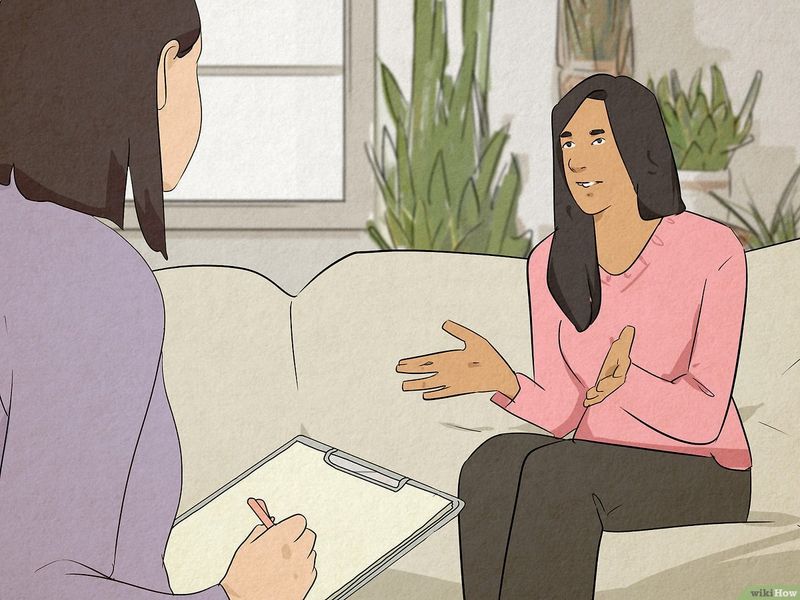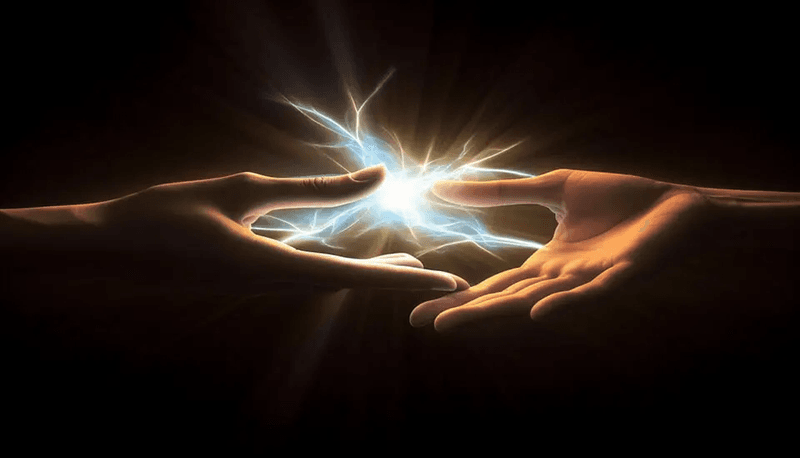Soul ties are deep emotional or psychological connections that can significantly influence our lives in various ways. Unlike romanticized notions, these ties can shape our identity, self-worth, and decisions over time.
This blog post explores 18 different aspects of soul ties, helping readers understand their impact on energy, growth, and relationships. By examining these connections, we can gain insight into how they may affect our lives and learn how to manage them constructively.
1. Not Every Strong Connection is Healthy
While strong connections can be nourishing, not all are beneficial. Some soul ties may be forged in moments of vulnerability, leading to relationships that seem strong but are, in fact, unhealthy. These connections can drain us emotionally, leaving us feeling exhausted and unfulfilled.
Recognizing these unhealthy ties is crucial to maintaining emotional well-being. It’s important to question the nature of these bonds and whether they truly serve our growth. Reflecting on the health of these connections helps us make informed choices about the people we allow into our lives. This understanding fosters resilience and empowers us to seek relationships that truly support our well-being.
2. You Might Still Feel Drained Long After They’re Gone
Even when a person is no longer in our lives, the impact of a soul tie can linger, leaving us feeling drained. This emotional exhaustion can persist, affecting our daily lives and interactions with others. It’s as if the connection leaves an imprint on our soul, hard to erase.
Recognizing this lingering effect is vital for healing. By understanding that these ties can continue to affect us, we can take steps to reclaim our energy. This might involve self-care, therapy, or simply acknowledging the need to let go. Recovery from these bonds requires patience and compassion towards oneself, as we work to restore our vitality and embrace new beginnings.
3. Some Bonds Keep Replaying in Your Head
Certain soul ties can replay in our minds like a broken record, incessantly reminding us of past interactions. These repetitive thoughts can be distracting, sometimes overwhelming our ability to focus on the present. They serve as reminders of unresolved emotions and unfinished business.
Acknowledging these repetitive mental patterns is the first step towards resolving them. Understanding why these memories persist helps us address any underlying issues, allowing us to move forward. Reflection and introspection can help untangle these thoughts, providing clarity and closure. By doing so, we free ourselves from the mental loops that hold us back, enabling us to embrace the present moment fully.
4. You Can Feel Responsible for Someone Else’s Emotions
Soul ties can create a sense of responsibility for another’s emotions, making us feel as if we carry their burdens. This emotional weight can be overwhelming, leading to stress and anxiety. Bearing this responsibility often comes from a place of empathy, but it can become detrimental.
Understanding the boundaries between our emotions and others’ is essential for maintaining mental health. By recognizing this tendency, we learn to differentiate between supporting someone and carrying their emotional load. Establishing healthy boundaries allows us to offer compassion without sacrificing our well-being. It’s a delicate balance that requires self-awareness and the courage to prioritize our emotional needs.
5. Not All “Closeness” is Real Connection
The illusion of closeness can sometimes mask a lack of real connection in soul ties. Being physically or socially close to someone doesn’t always equate to emotional intimacy or understanding. This superficial closeness can leave us feeling empty and disconnected.
Recognizing the difference between proximity and genuine connection is crucial for nurturing fulfilling relationships. True connection requires vulnerability, trust, and mutual understanding. By striving for authentic bonds, we foster relationships that enrich our lives and provide genuine support. This awareness helps us cultivate deeper connections, enhancing our overall sense of belonging and emotional satisfaction.
6. Breaking a Tie Doesn’t Mean You Stop Caring
Ending a soul tie doesn’t necessitate the cessation of care for the other person. While the bond may no longer serve its purpose, the care and affection shared can endure. Letting go of a connection doesn’t imply a loss of love or compassion.
This understanding allows us to separate the need to move on from the feelings we hold. It’s about recognizing when a relationship no longer aligns with our growth while still honoring the shared experiences. This perspective enables us to transition with grace and empathy, preserving the positive aspects of the connection. It’s a compassionate approach to moving forward.
7. You May Confuse Guilt with Love
In the realm of soul ties, guilt can often masquerade as love, creating confusion about our true feelings. This can stem from a sense of obligation or past actions, leading us to believe that guilt is synonymous with affection.
Recognizing this distinction is crucial for emotional clarity. By examining the nature of our feelings, we can discern whether they are rooted in genuine love or misplaced guilt. This awareness helps prevent the entanglement of emotions that can cloud judgment and lead to unhealthy dynamics. Embracing this clarity allows us to foster relationships based on true affection and mutual respect, rather than obligation.
8. Repeating Toxic Patterns is Often a Clue
Recurrent toxic patterns in relationships are often indicative of deep-seated soul ties that need addressing. These patterns can manifest as repeated behaviors or choices that consistently lead to negative outcomes.
Recognizing these patterns is the first step towards breaking free from them. By identifying the underlying soul ties that fuel these cycles, we can work towards healing and change. This process requires introspection and a willingness to confront uncomfortable truths about our relationships. Breaking these patterns is empowering, allowing us to create healthier, more fulfilling connections in the future.
9. You May Take on Someone Else’s Shame or Fear
Soul ties can lead us to unconsciously absorb another person’s shame or fear, burdening us with emotions that aren’t ours to carry. This absorption can stem from deep empathy or a desire to protect those we care about.
Understanding this tendency helps us distinguish between our own emotions and those we’ve taken on from others. By setting boundaries and practicing emotional detachment, we can prevent these feelings from overwhelming us. This awareness allows us to support others without compromising our emotional health, fostering relationships that are healthier and more balanced.
10. Ending a Bond Can Free Your Own Voice
Ending a soul tie can liberate your voice, allowing you to express your true self without restriction. These ties can sometimes stifle our individuality, making it difficult to speak up or assert our own needs.
Recognizing when a bond is limiting our expression is key to reclaiming our autonomy. By letting go of these limiting ties, we empower ourselves to communicate more openly and authentically. This freedom enables us to pursue our passions and interests without fear of judgment or constraint, fostering a sense of liberation and self-discovery.
11. Old Ties Can Make New Relationships Harder
Old soul ties can create barriers to forming new relationships, as they may carry unresolved emotions and expectations. These lingering connections can overshadow our ability to fully engage with new people.
Understanding the impact of past ties helps us navigate these challenges. By addressing any unresolved issues from previous relationships, we can enter new ones with a clearer perspective. This process involves self-reflection and a willingness to let go of past baggage. Embracing this understanding allows us to cultivate healthier, more open-hearted connections with others.
12. You May Find It Hard to Let Go of People Who Hurt You
Letting go of soul ties with those who have hurt us can be an arduous process. These connections may be intertwined with complex emotions, making it challenging to release them fully.
Acknowledging the pain and recognizing the need to move on are crucial steps in this journey. By understanding the reasons behind our reluctance to let go, we can begin to heal and reclaim our emotional freedom. This process requires courage and self-compassion, as we work to sever ties that no longer serve our well-being. It’s an empowering act of self-care and resilience.
13. Loyalty Isn’t Always Mutual—Soul Ties Can Blind You
Soul ties can create a false sense of loyalty, blinding us to the reality of the relationship. This loyalty may not always be reciprocated, leading to imbalanced dynamics that can be emotionally draining.
Recognizing the lack of mutual loyalty is essential for maintaining healthy relationships. By assessing the nature of our connections, we can determine whether they truly serve our growth. This awareness helps us make informed choices about the people we invest in, ensuring that our loyalty is placed in relationships that are balanced and rewarding.
14. Silence Doesn’t Mean It’s Over Emotionally
The absence of communication doesn’t necessarily equate to emotional closure in soul ties. These bonds can continue to influence our emotions, even in the absence of physical interaction.
Acknowledging this ongoing emotional impact allows us to address any unresolved feelings. By understanding that silence doesn’t mean closure, we can take steps towards healing. This may involve introspection, seeking closure through other means, or simply accepting the lingering emotions. Embracing this understanding enables us to work through our feelings and move forward with clarity and peace.
15. You Can Heal Even If They Never Apologize
Healing from soul ties doesn’t always require an apology from the other person. The journey to emotional recovery is one that we can undertake independently, focusing on our own healing.
Recognizing that we don’t need external validation to heal is empowering. By taking ownership of our emotions and choosing to let go, we can find peace and closure. This process involves self-forgiveness and a commitment to personal growth, allowing us to move forward without the need for an apology. It’s a testament to our resilience and capacity for healing.
16. Cutting Ties Doesn’t Make You a Bad Person
Ending a soul tie is an act of self-care and doesn’t make you a bad person. This decision often stems from a need to prioritize our well-being and personal growth.
Understanding this perspective helps us make peace with the choice to sever connections that no longer serve us. It’s about recognizing our boundaries and valuing our emotional health. By embracing this decision, we empower ourselves to cultivate relationships that are supportive and nurturing. It’s an act of self-respect and courage, reaffirming our commitment to living authentically.
17. Emotional Attachment Isn’t the Same as Real Intimacy
Emotional attachment in soul ties can sometimes be mistaken for real intimacy, but the two are distinct. Attachment may arise from dependency or familiarity, while true intimacy involves mutual understanding and trust.
Recognizing this difference helps us foster relationships that are genuinely fulfilling. By seeking connections that are based on true intimacy, we create a foundation for meaningful and lasting relationships. This awareness allows us to form bonds that are enriching and supportive, enhancing our emotional well-being and sense of belonging.
18. Awareness is the First Step to Breaking Free
Awareness of soul ties and their impact is the first step towards breaking free from unhealthy connections. This understanding allows us to recognize the influence these ties have on our lives and emotions.
By cultivating awareness, we empower ourselves to make informed decisions about our relationships. This process involves introspection, self-reflection, and a willingness to confront uncomfortable truths. Embracing this awareness is a powerful act of self-liberation, enabling us to pursue healthier, more fulfilling connections that align with our true selves.



















